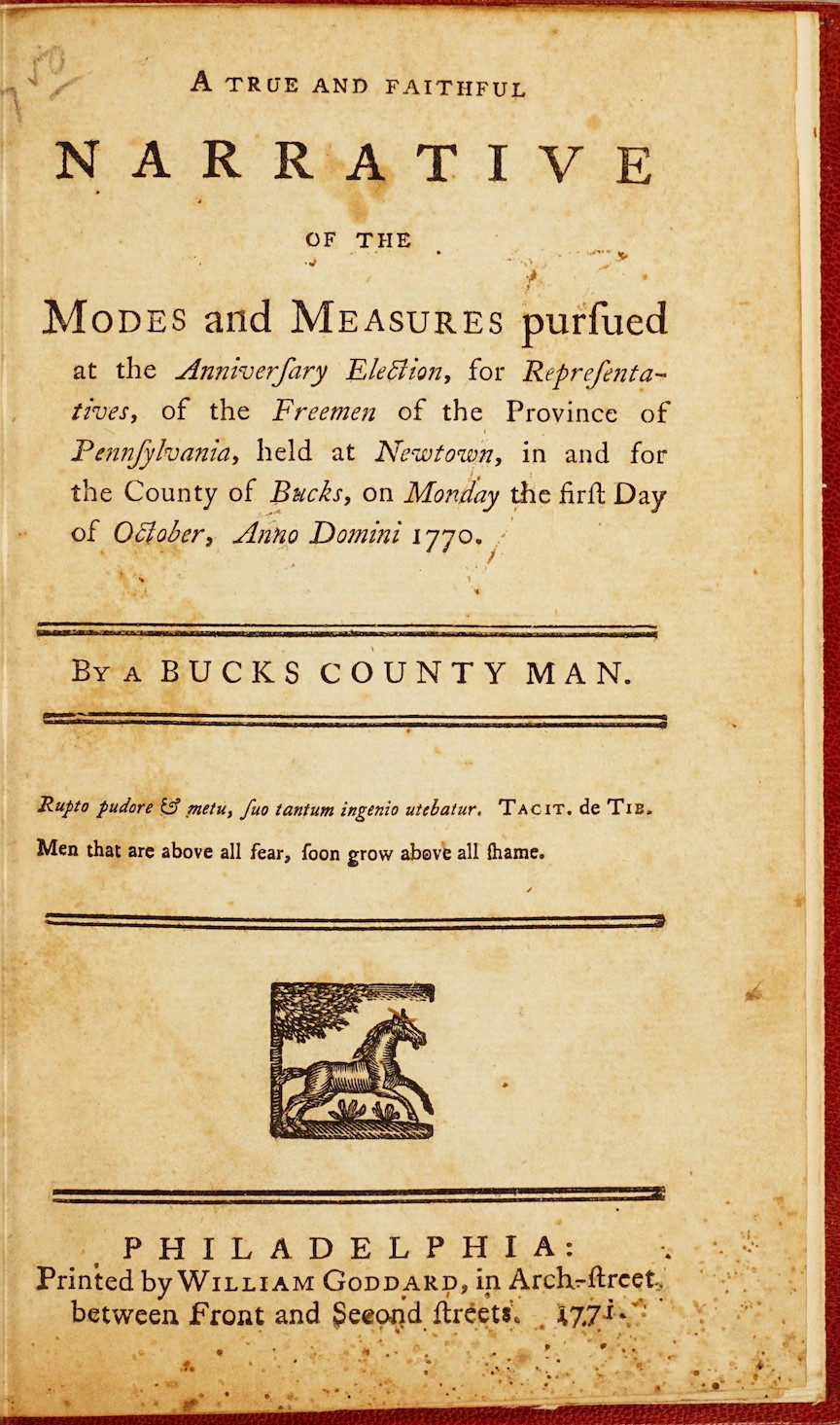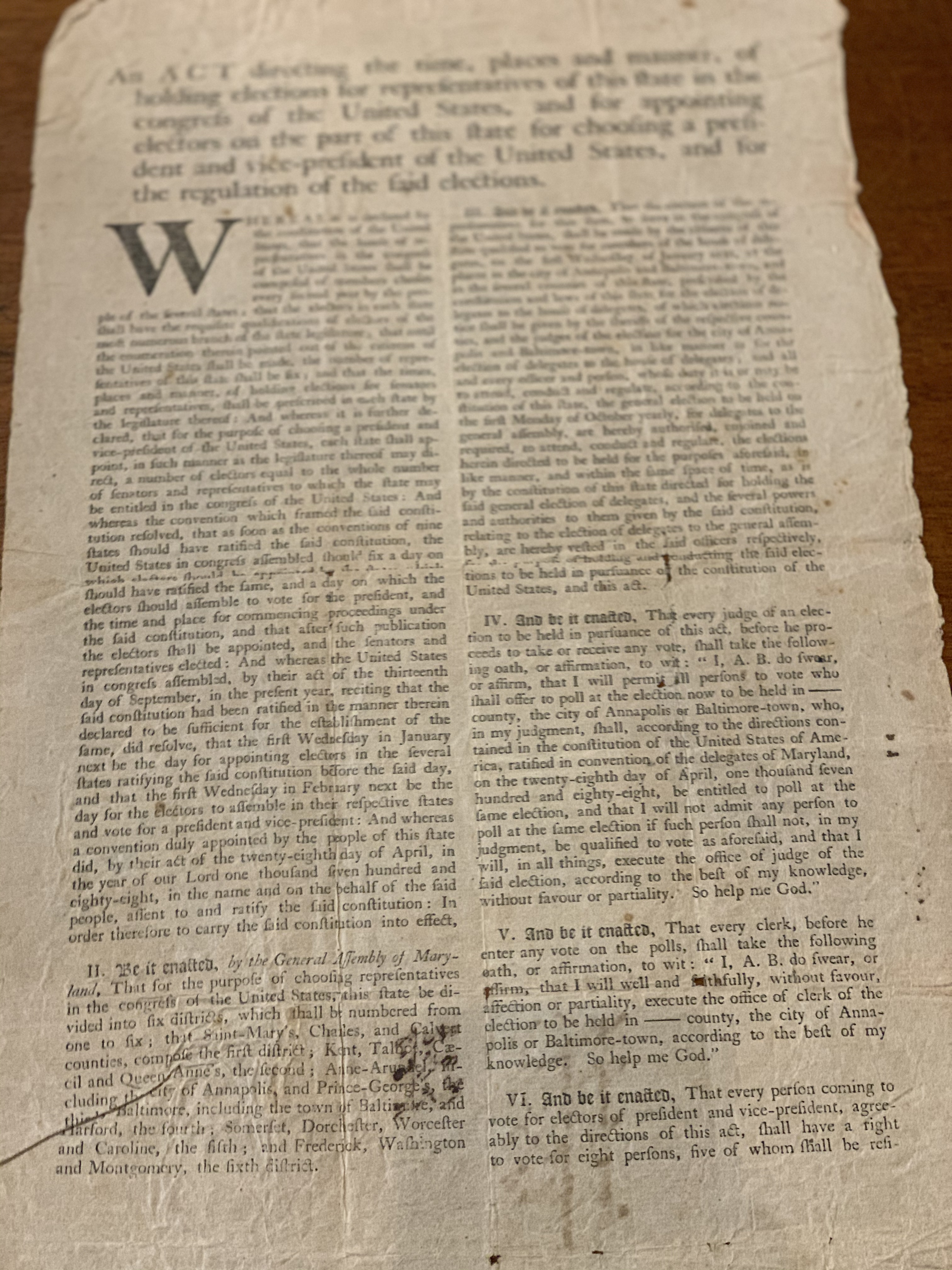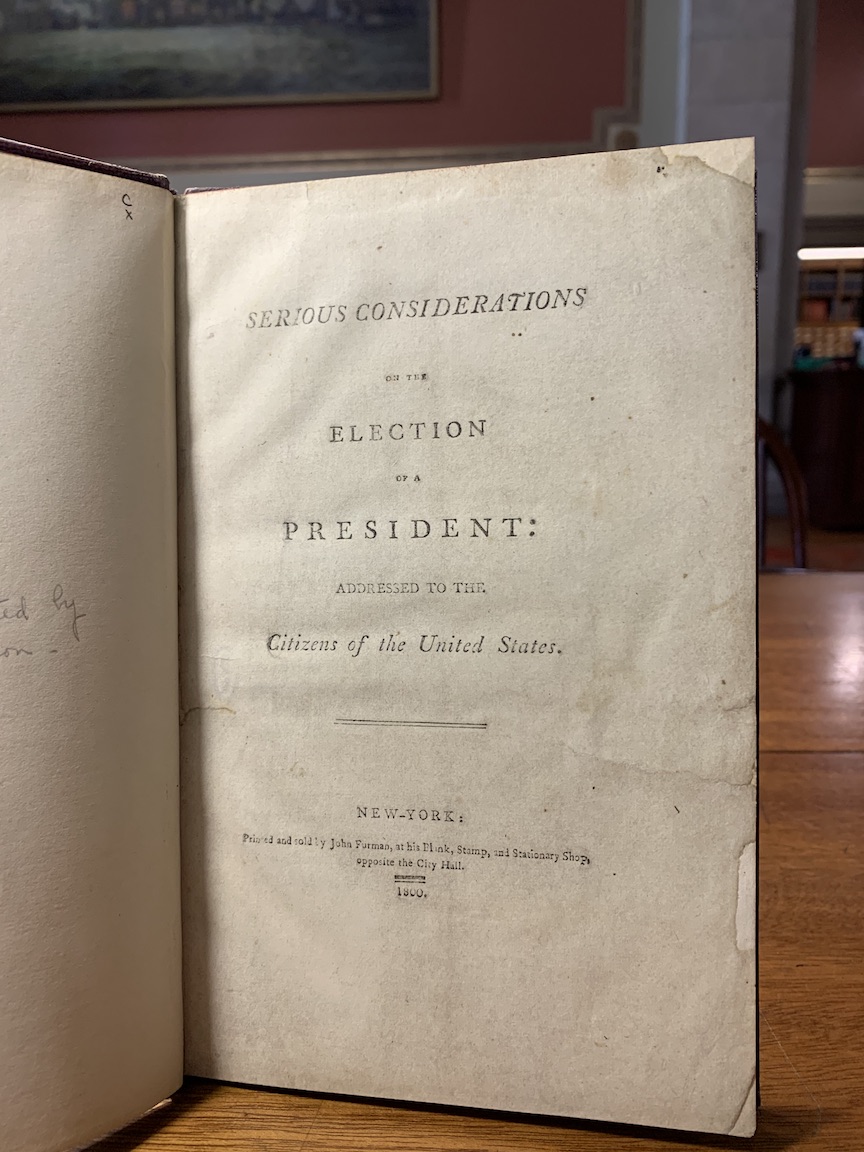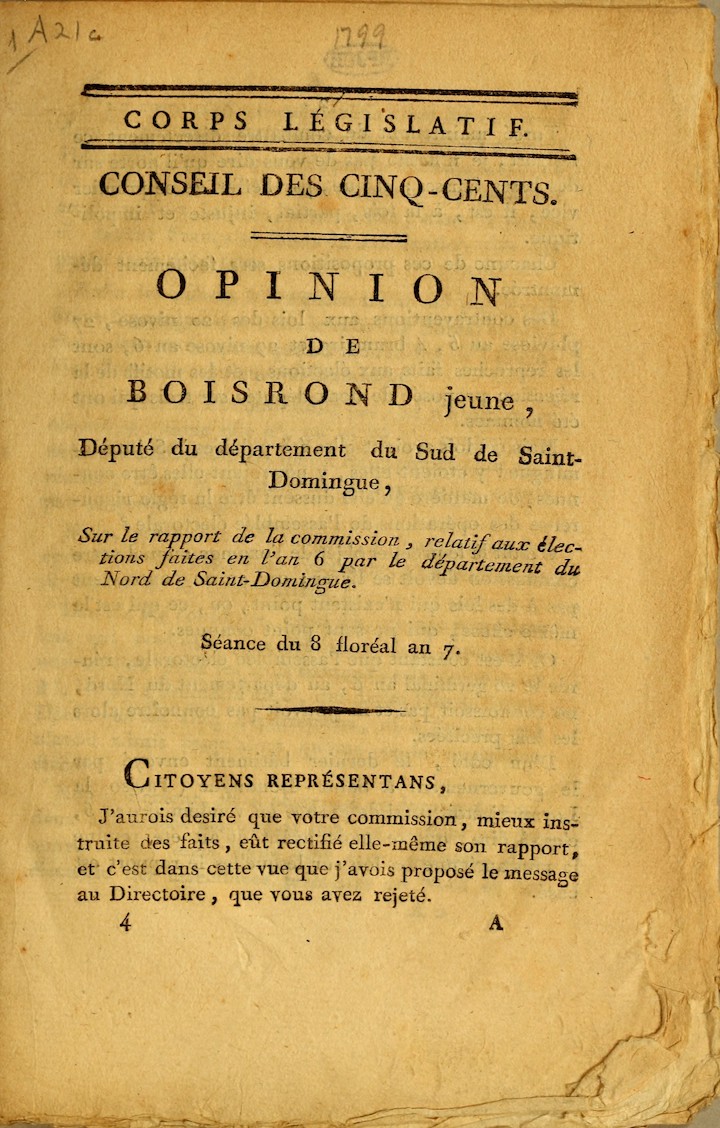Elections 2020
As local officials across the United States prepare for an unprecedented presidential election against the backdrop of a global pandemic, we hope that a few selected pamphlets from the JCB's collection can offer a semblance of historical diversion – if not electoral education – for members of our community.
These four documents - three from the nascent United States and one from colonial Haiti (Saint-Domingue) – bear witness to the contentious atmosphere that reigned in the late colonial period as printed pamphlets, the medium of the day, exploded across land and sea to influence voters and malign opposing candidates.
The only thing that's changed today is the pace at which these barbs are slung!
Exercise your right to vote on November 3!
Fanfare against a “Frothy Machiavel”
 This anonymous pamphlet, which has been attributed to the printer William Goddard, denounces Joseph Galloway for having used dubious tactics in the 1770 election to the Pennsylvania Provincial Assembly. The author, who signed his diatribe as “a Bucks County man,” calls Galloway “a mischievous trifling superficial busy-body,” and declares that he lacks any natural or acquired ability to hold public office. During the Revolutionary War, Galloway became a Loyalist and eventually lived in exile in Britain after the United States won its independence.
This anonymous pamphlet, which has been attributed to the printer William Goddard, denounces Joseph Galloway for having used dubious tactics in the 1770 election to the Pennsylvania Provincial Assembly. The author, who signed his diatribe as “a Bucks County man,” calls Galloway “a mischievous trifling superficial busy-body,” and declares that he lacks any natural or acquired ability to hold public office. During the Revolutionary War, Galloway became a Loyalist and eventually lived in exile in Britain after the United States won its independence.
Adjustments to the Electoral College – in Maryland

In fourteen sections, this document from the General Assembly of Maryland sought to rectify the dates of elections for representatives, senators, and the president and vice-president of the United States. The "Act directing the time, places and manner, of holding elections..." also provides guidance to election judges, who must swear and affirm that "they will permit all persons to vote who shall offer to poll at the election..." and that such duties would be carried out "without favour or partiality." This document came into the Library in 1935, when Lawrence C. Wroth – who himself hailed from Maryland and had been the assistant librarian of the Enoch Pratt Free Library in Baltimore – was serving as Librarian of the John Carter Brown Library, a post he took up in 1923.
A Diatribe against Deism
 The fourth US presidential election took place in the year 1800. It was contested between Thomas Jefferson of the Republican Party and the incumbent President John Adams of the Federalist Party. On that occasion, the Reverend William Linn (1752–1808), first Chaplain of the United States House of Representatives, felt compelled to write the pamphlet Serious Considerations on the Election of a President Addressed to the Citizens of the United States, arguing against electing Jefferson as the next president.
The fourth US presidential election took place in the year 1800. It was contested between Thomas Jefferson of the Republican Party and the incumbent President John Adams of the Federalist Party. On that occasion, the Reverend William Linn (1752–1808), first Chaplain of the United States House of Representatives, felt compelled to write the pamphlet Serious Considerations on the Election of a President Addressed to the Citizens of the United States, arguing against electing Jefferson as the next president.
His text represents a passionate call to action for acting responsibly in what he calls “the exercise of the important privilege” of voting. However Linn’s opposition is not based on Jefferson’s political ideas but on the religious views and ideas he expressed in his Notes on the State of Virginia (Paris, 1785). Reverend Linn makes a case against electing Jefferson as President of the United States on the base of his deism and religious beliefs rooted in the Enlightenment.
Representation and Revolution
 The tense relationship between the colony of Saint Domingue and the French metropole during the 1790s, the chaotic decade of the Haitian and French Revolutions, imperiled the development of representational democracy in the colony. In this pamphlet, Louis François Boisrond-Jeune, a locally-born free man of color and an elected representative from the southern department of Saint Domingue, fought to increase and to consolidate the colony’s representation in both the Council of Ancients and the Council of Five Hundred, the two legislative bodies that maintained power during the Directory period of the French Revolution. The JCB has an extensive collection of these pamphlets, all printed in Paris and all attesting to the attempts made by local elected bodies to ensure that the political goals, including emancipation, of the colony-in-revolution would continue to be ratified by the metropole-in-revolution.
The tense relationship between the colony of Saint Domingue and the French metropole during the 1790s, the chaotic decade of the Haitian and French Revolutions, imperiled the development of representational democracy in the colony. In this pamphlet, Louis François Boisrond-Jeune, a locally-born free man of color and an elected representative from the southern department of Saint Domingue, fought to increase and to consolidate the colony’s representation in both the Council of Ancients and the Council of Five Hundred, the two legislative bodies that maintained power during the Directory period of the French Revolution. The JCB has an extensive collection of these pamphlets, all printed in Paris and all attesting to the attempts made by local elected bodies to ensure that the political goals, including emancipation, of the colony-in-revolution would continue to be ratified by the metropole-in-revolution.